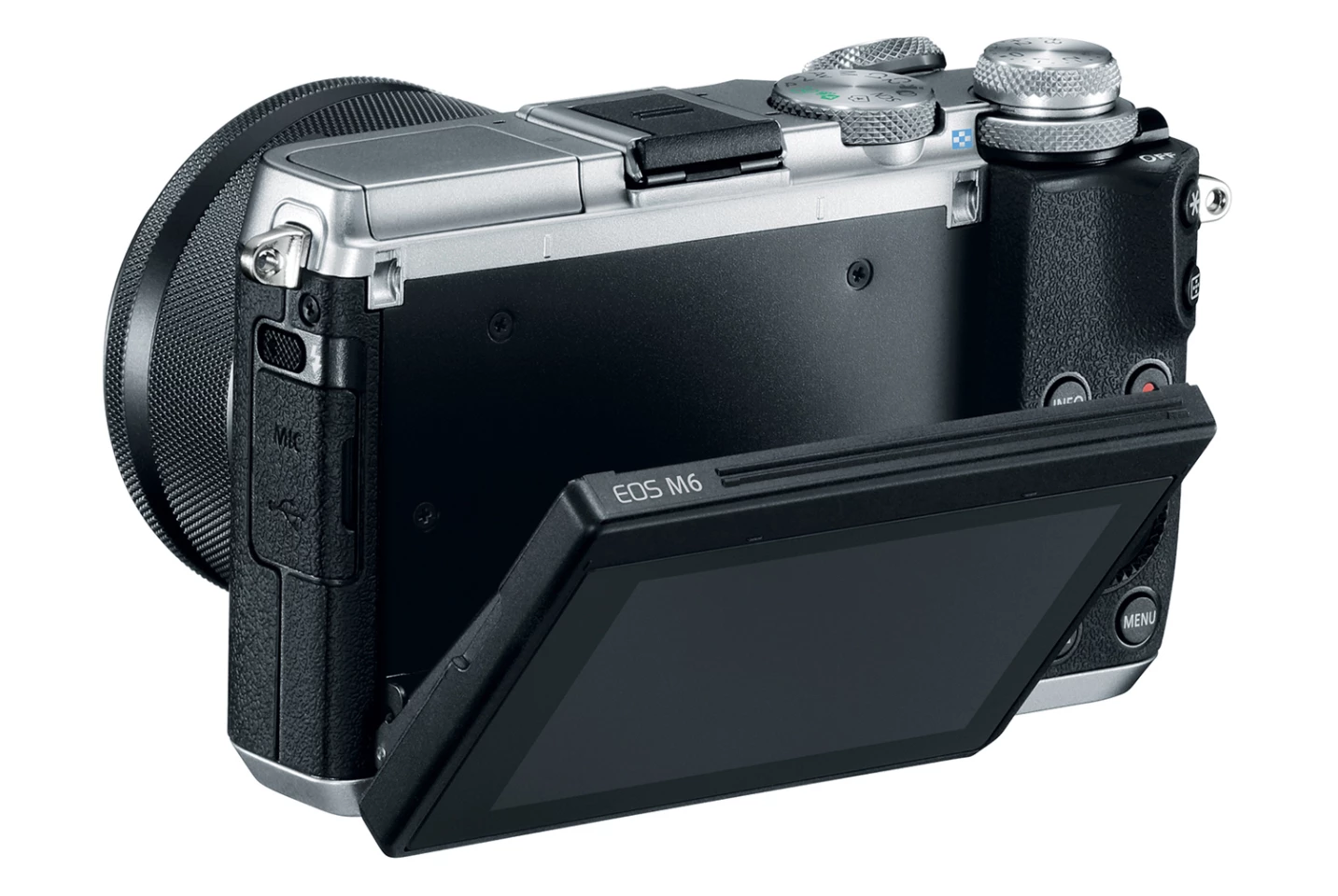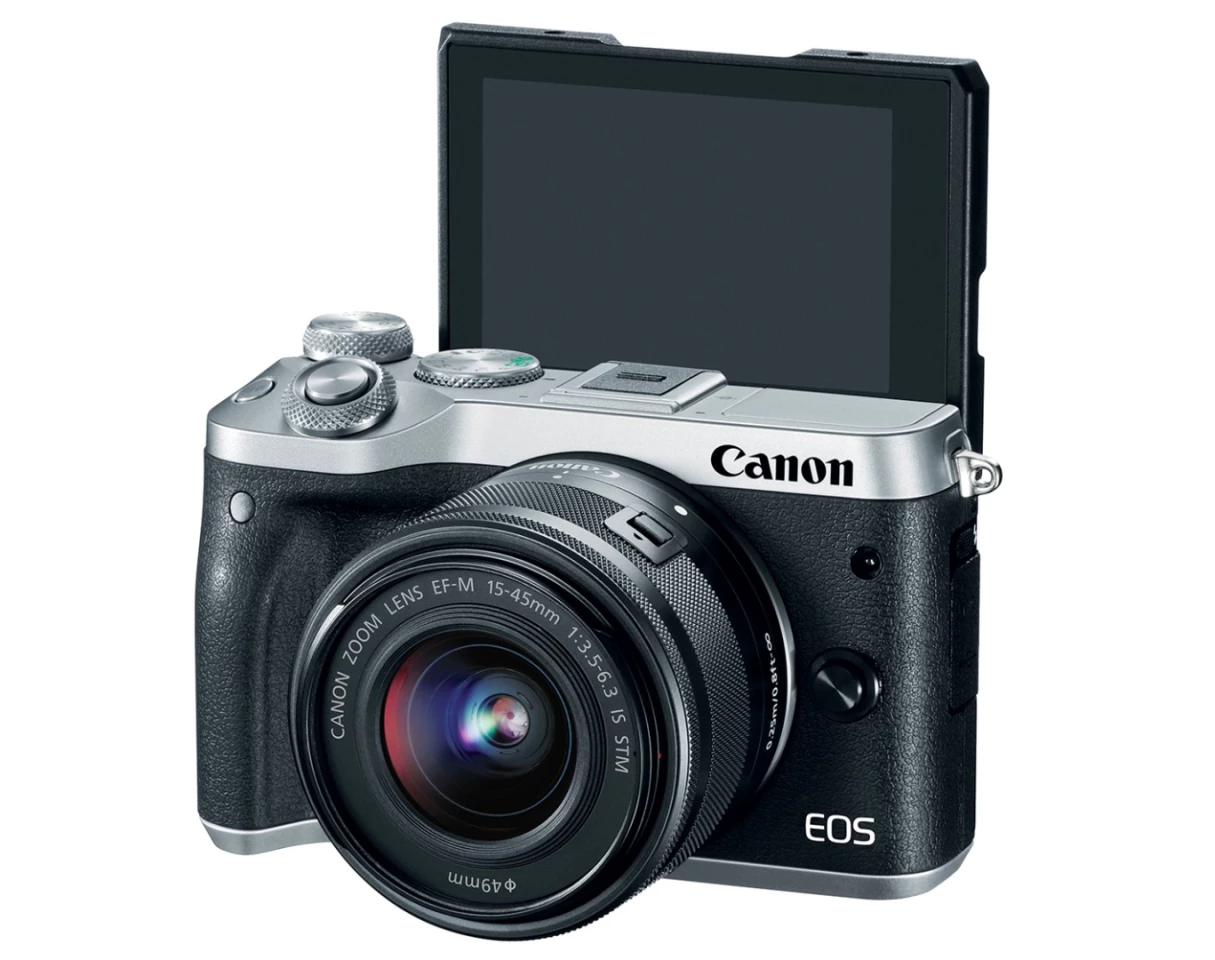We were pleasantly surprised when we spent some time with Canon's flagship mirrorless camera, the EOS M5. It felt like a mini DSLR. Now Canon has packed much of what impressed us about that camera into an even smaller package with the mid-range EOS M6, by stripping away the built-in electronic viewfinder.
After years of mirrorless mis-steps, it felt like Canon finally understood mirrorless cameras when it announced the M5. The camera didn't compromise on quality, and inherited a number of features from the firm's DSLR line. Now Canon is hoping to build on that with the M6, a more compact mirrorless camera which will – slightly confusingly given its name – slot into the lineup between the M3 and the M5.
As we've said, the Canon EOS M6 has a lot in common with the flagship EOS M5. For starters, it uses a 24-megapixel APS-C CMOS sensor paired with Canon's Digic 7 image processor, giving an ISO range of 100 to 25,600 and a continuous shooting speed of 7 fps (frames per second) or 9 fps with AF Lock.

The camera also benefits from Canon's Dual Pixel CMOS AF which delivers quick and smooth focusing whether shooting stills or video. Unfortunately, the M6 can only muster video resolutions of up to Full HD 1080p 60 fps, which means fans of 4K are again going to be disappointed and left looking at rival cameras like the Fujifilm X-T20 or the Sony A6500. 5-axis digital image stabilization is at least on hand to help reduce shake when shooting.
The camera will be available in either a black or silver finish, measures 112 x 68 x 44.5 mm (4.4 x 2.7 x 1.75 in), and weighs in at 390 g (13.7 oz) with a battery and memory card, but without a lens. Despite the relatively compact size of the camera, Canon appears to have done a better job of arranging controls than on cameras like the EOS M3, and as such the EOS M6 boasts five functional dials for changing settings.

On the rear of the camera is a 3-inch touchscreen with 1,040k dots which can be tilted 180 degrees up and 45 degrees down. This is something the M5 couldn't do because its built-in EVF would have got in the way. The touchscreen on that camera is limited to tilting 85 degrees up and 180 degrees down, which isn't much good if the camera is mounted on a tripod.
That brings us to the fact that the M6 lacks the built-in EVF which made the M5 feel DSLR-like and helped us enjoy using that camera. Luckily, Canon is also introducing a new external electronic viewfinder, the EVF-DC2, which will work with compatible EOS M cameras and some PowerShot models. The compact and, at 29 g (1 oz), lightweight viewfinder includes a 2.36 million dot display and has a refresh rate of up to 120 fps.

Wireless connectivity includes Wi-Fi, NFC and Bluetooth, letting you review and share content, or control the camera remotely from Canon's iOS or Android apps. Battery life is said to give you around 295 shots from a full charge, and in addition to using the EF-M lens mount, other Canon lenses can be used via an optional adapter.
The Canon EOS M6 is due to be available in April priced at US$780 body-only, $900 bundled with a 15-45-mm kit lens, or $1,280 with a 18-150-mm optic. The optional EVF-DC2 viewfinder will cost $200 at launch. Interestingly, that makes the M6 and the EVF the same price as the M5 (with a built-in viewfinder) currently sells for.
You can watch a video introducing the Canon EOS M6 below.
Product page: Canon EOS M6, Canon EVF-DC2










